Living Well with Multiple Sclerosis
Welcome to Living Well with MS, the podcast from the Overcoming MS charity. In each episode, your host Geoff Allix explores a different aspect of the Overcoming MS Program in greater depth by talking with experts and people with MS about health lifestyle changes. New episodes are published on Wednesdays and feature interviews with scientists, neurologists, fitness specialists, diet experts, stress reduction professionals. The podcast also features inspirational, real-life stories from people with multiple sclerosis following the Overcoming MS program, about the challenges and victories of managing symptoms through lifestyle modification.
Episodes
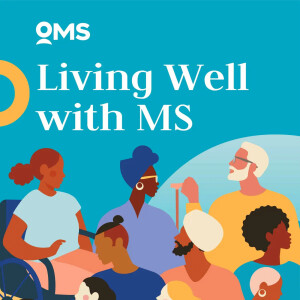
Wednesday Sep 18, 2024
Wednesday Sep 18, 2024
Welcome to Living Well with MS, the podcast that empowers you to take control of your health and wellbeing. Today we’re sharing the highlights from our ‘Ask Aaron’ webinar, recorded in front of a global audience, with the incredible Dr Aaron Boster. Dr Boster is a board-certified neurologist who specialises in MS, and we’re delighted to have him answering a huge range of questions from our community! From medications to MRI’s and pregnancy to cold showers, Dr Boster gave us so many brilliantly informative answers - we hope you find this episode really useful. Let us know what you think!
Watch this episode on YouTube here. Keep reading for the key episode takeaways.
Topics and Timestamps:
01:49 Defining benign MS
05:05 How to get the most out of your time with your neurologist
09:32 The DMTs that help with brain atrophy
09:46 MRI’s as a way to show the rate of brain atrophy
18:20 Aubagio for secondary progressive MS
22:11 The future of Ocrevus dosing guidelines and becoming pregnant on ocrelizumab
26:31 Treating MS-relating dystonia
28:37 Treatments for MS-related bladder dysfunction
35:15 Low-dose Naltrexone for MS
39:00 The benefits of cold showers
39:38 Immune reconstitution therapies
43:22 Managing MS with diet and exercise
To join us live for the next webinar or watch the original presentation head to our website overcomingms.org
More info and links:
Dr Boster was on five previous Living Well with MS episodes:
S1E11: Making the Right Medication Choices
S2E17: Lifestyle Choices and Their Impact on MS
S3E43: Let’s Talk About Sex (and MS)
S5E5 Webinar highlights from Ask Aaron with Dr. Aaron Boster
S5E36 Webinar Highlights: Ask a Neurologist with Dr Aaron Boster
Check out Dr Boster’s popular YouTube channel covering all aspects of MS
New to Overcoming MS? Visit our introductory page
Connect with others following Overcoming MS on the Live Well Hub
Visit the Overcoming MS website
Follow us on social media:
Facebook
Instagram
YouTube
Pinterest
Don’t miss out:
Subscribe to this podcast and never miss an episode. Listen to our archive of Living Well with MS episodes here. If you like Living Well with MS, please leave a 5-star review.
Feel free to share your comments and suggestions for future guests and episode topics by emailing podcast@overcomingms.org.
Make sure you sign up to our newsletter to hear our latest tips and news about living a full and happy life with MS.
Support us:
If you enjoy this podcast and want to support the ongoing work of Overcoming MS, we would really appreciate it if you could leave a donation here. Every donation, however small, helps us to share the podcast with more people on how to live well with MS.

Wednesday Sep 04, 2024
Wednesday Sep 04, 2024
Welcome to Living Well with MS, the podcast that empowers you to take control of your health and wellbeing. Today we’re thrilled to welcome Dr Robert Motl as our guest! Dr Motl is a professor of kinesiology, nutrition and rehabilitation sciences at the University of Illinois at Chicago. He’s a top researcher in the field of exercise and physical activity for people living with MS and, in this fascinating episode, he talks to Overcoming MS facilitator Veronique Gauthier-Simmons about how much exercise is recommended for people with MS, the differences between lifestyle physical activity and structured exercise, and he explains how exercise works within the brain to slow MS progression. We learnt so much from Dr Motl, and hope it helps you kick start a new phase in your relationship with physical activity. Let us know what you think!
Watch this episode on YouTube here. Keep reading for the key episode takeaways.
Topics and Timestamps:
02:09 Overview of Dr Motl’s research lab and team
03:21 Dr Motl’s interest in multiple sclerosis
05:57 Key findings over the years of the benefits of exercise for people with MS
09:32 Lifestyle physical activity vs. structured exercise for people with MS
15:03 How much exercise is recommended for people with MS?
17:39 Exercise as a disease modifying behavior
20:28 What part of the disease progression does exercise help?
22:12 Exercise’s effects on the brain
25:50 Who benefits the most from exercise?
28:42 Social prescribing of exercise for people with MS
31:16 Exercise’s effects on mood for people with MS
34:54 How to participate in future studies
36:16 The benefits of a holistic approach to MS management
Want to learn more about living a full and happy life with multiple sclerosis? Sign up to our newsletter to hear our latest tips.
More info and links:
Learn more about Veronique Gauthier-Simmons
Learn more about Dr Motl’s Exercise Neurology Reseach Laboratory
New to Overcoming MS? Visit our introductory page
Connect with others following Overcoming MS on the Live Well Hub
Visit the Overcoming MS website
Follow us on social media:
Facebook
Instagram
YouTube
Pinterest
Don’t miss out:
Subscribe to this podcast and never miss an episode. Listen to our archive of Living Well with MS episodes here. If you like Living Well with MS, please leave a 5-star review.
Feel free to share your comments and suggestions for future guests and episode topics by emailing podcast@overcomingms.org.
Make sure you sign up to our newsletter to hear our latest tips and news about living a full and happy life with MS.
If you enjoy this podcast and want to support the ongoing work of Overcoming MS, you can leave a donation here.
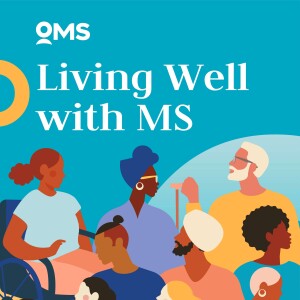
Wednesday Aug 21, 2024
Wednesday Aug 21, 2024
Welcome to Living Well with MS, the podcast that empowers you to take control of your health and wellbeing. Today we’re sharing the highlights from our webinar on ‘Resilience following Overcoming MS’ with the fantastic Dr Rachael Hunter. Rachael is a clinical psychologist and senior lecturer in clinical and health psychology at Swansea University. She's an OMSer herself and wrote the chapter on resilience in the Overcoming Multiple Sclerosis Handbook. She gave us so much interesting information and many helpful tips - we hope you find this really useful in bringing resilience into your own life. Let us know what you think! Watch this episode on YouTube here and keep reading for the key episode takeaways. Topics and Timestamps: 00:59 Dr Hunter’s professional background and an overview of the Overcoming MS Program 04:30 What happens to the body physiologically during a stress response 06:55 Maslow’s hierarchy of needs and the fundamentals of wellness 09:37 Managing emotional wellbeing and scheduling “worry time” 14:30 Managing anxiety through self-compassion and mindfulness 17:24 The benefits of positive relationships with others Want to learn more about living a full and happy life with multiple sclerosis? Sign up to our newsletter to hear our latest tips. More info and links: Dr Rachael Hunter was featured on S4E67: ‘Building Resilience with Dr Rachael Hunter’ Follow Dr Hunter on Facebook, Instagram and Twitter New to Overcoming MS? Visit our introductory page Connect with others following Overcoming MS on the Live Well Hub Visit the Overcoming MS website Follow us on social media: Facebook Instagram YouTube Pinterest Don’t miss out: Subscribe to this podcast and never miss an episode. Listen to our archive of Living Well with MS episodes here. If you like Living Well with MS, please leave a 5-star review. Feel free to share your comments and suggestions for future guests and episode topics by emailing podcast@overcomingms.org. Make sure you sign up to our newsletter to hear our latest tips and news about living a full and happy life with MS. If you enjoy this podcast and want to support the ongoing work of Overcoming MS, you can leave a donation here.
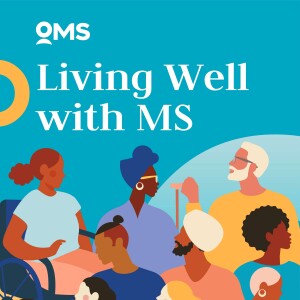
Wednesday Aug 07, 2024
Wednesday Aug 07, 2024
Welcome to Living Well with MS, where we are pleased to welcome Jenna Cox as our guest! Jenna is a nutritional therapist who lives with MS and is an Ambassador for the Bristol, UK Circle. In this episode, she talks about dairy alternatives, calcium and bone density on a plant-based diet and probiotics for the gut microbiome. Topics and Timestamps: 00:58 Jenna’s MS diagnosis 05:12 Adopting the Overcoming MS Program 09:19 Jenna’s work as a nutritional therapist 12:22 Diary-free swaps for milk, cheese and other products 15:16 Calcium and bone density on the Overcoming MS diet 21:30 Nutrition for PMS and PMDD 27:15 Probiotics and the gut microbiome for people with MS 33:31 The link between MS and cardiovascular issues, especially for women More info and links: New to Overcoming MS? Visit our introductory page Connect with others following Overcoming MS on the Live Well Hub Learn more about Jenna’s work at www.jennacox.co.uk Follow Jenna on Instagram @jennacoxnutrition Check out the Overcoming MS diet recommendations Check out the Menopause and MS roundtable hosted by Dr Jonny White Visit the Overcoming MS website Follow us on social media: Facebook Instagram YouTube Pinterest Don’t miss out: Subscribe to this podcast and never miss an episode. Listen to our archive of Living Well with MS episodes here. If you like Living Well with MS, please leave a 5-star review. Feel free to share your comments and suggestions for future guests and episode topics by emailing podcast@overcomingms.org. Make sure you sign up to our newsletter to hear our latest tips and news about living a full and vibrant life with MS. If you enjoy this podcast and want to support the ongoing work of Overcoming MS, you can leave a donation here.
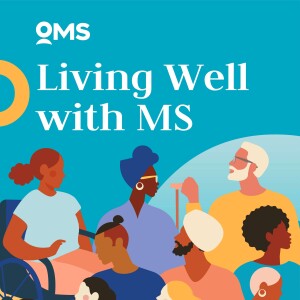
Wednesday Jul 31, 2024
Wednesday Jul 31, 2024
In this episode, we’re sharing highlights from a ‘talkhealth’ webinar: ‘TH+ Expert Webinar with Dr Jonathan White: Overcoming MS’. In the webinar, Overcoming MS medical advisor, Dr Jonathan White speaks about the evidence and benefits of the Program, his personal MS journey and making healthy changes for life. ‘talkhealth’ is a patient-centric online health community based in the UK, that provides a full range of support services. Topics and timestamps: 02:25 Intro: Jonathan’s MS diagnosis and Overcoming MS journey. 09:27 The importance of a compassionate diagnosis. 10:14 Finding hope with an MS diagnosis with a healthy lifestyle. 11:29 An overview of the Program. 12:35 How Overcoming MS can prevent other conditions. 13:14 The history of the Overcoming MS charity. 16:27 Connecting through Overcoming MS Circles. 18:39 The research behind the Overcoming MS Program. 22:41 The benefits of physical activity for people with MS. 24:53 Mindfulness and mental health. 28:21 Disease-modifying drugs for MS. 32:14 Preventing MS in family members. 39:24 How to change your life, for life. 42:13 The increase in plant-based options at stores and restaurants. More info and links: Watch the original webinar Find out more about ‘talkHealth’ Hear Jonathan on other episodes including the 100th Episode, the menopause roundtable, an introduction to Overcoming MS, Learn about creating habits with Atomic Habit by James Clear Learn about meditation from Ten Percent Happier Sign up to the 6 Months to Overcoming MS course New to Overcoming MS? Visit our introductory page Connect with others following Overcoming MS on the Live Well Hub Visit the Overcoming MS website Follow us on social media: Facebook Instagram YouTube Pinterest Don’t miss out: Subscribe to this podcast and never miss an episode. You can catch any episode of Living Well with MS here or on your favourite podcast listening app. If you like Living Well with MS, please leave a 5-star review on Apple Podcasts or wherever you tune into the show. Feel free to share your comments and suggestions for future guests and episode topics by emailing podcast@overcomingms.org. Make sure you sign up to our newsletter to hear our latest tips and news about living a full and happy life with MS. If you enjoy this podcast and want to support the ongoing work of Overcoming MS, you can leave a donation here.
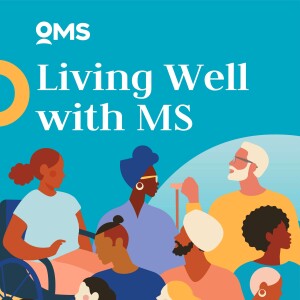
Wednesday Jul 24, 2024
Wednesday Jul 24, 2024
Welcome to Living Well with MS, where we are pleased to welcome Jane and Ian Airey-Regardsoe as our guests! Jane is a member of the Southwest, UK Circle and her husband, Ian is cycling to France as a fundraising challenge, supported by Jane, to benefit Overcoming MS. They chat about adopting the Overcoming MS Program as a couple, their fundraising challenge and why they’ve chosen to support the charity. Watch this episode on YouTube here. Topics and Timestamps: 01:22 Jane’s MS diagnosis and Overcoming MS journey. 06:49 Adopting the Overcoming MS Program as a partner. 10:08 Tips for adopting the Overcoming MS Program. 11:17 How to improve low vitamin D levels. 14:53 Jane and Ian’s ‘Door to Door cycle’ fundraiser. 16:56 The impact of raising money for Overcoming MS. 18:24 How to prepare for a physical challenge. 24:03 Tips for starting your own fundraising efforts. Want to learn more about living a full and happy life with multiple sclerosis? Sign up to our newsletter to hear our latest tips. More info and links: Door to Door Challenge Facts: Date: 8th to 27th September Distance: 950 miles (1,564 km) Total Ascent: 59,000 ft Total Descent: 46,400 ft Route: Holcombe Rogus, Poole, Normandy, Britanny, The Loire, Poitou-Charentes, Limousin, Midi Pyrenees View the route here Contribute to Jane and Ian’s fundraising page Follow Jane and Ian’s blog New to Overcoming MS? Visit our introductory page Connect with others following Overcoming MS on the Live Well Hub Visit the Overcoming MS website Follow us on social media: Facebook Instagram YouTube Pinterest Don’t miss out: Subscribe to this podcast and never miss an episode. Listen to our archive of Living Well with MS episodes here. If you like Living Well with MS, please leave a 5-star review. Feel free to share your comments and suggestions for future guests and episode topics by emailing podcast@overcomingms.org. Make sure you sign up to our newsletter to hear our latest tips and news about living a full and happy life with MS. Support us: If you enjoy this podcast and want to support the ongoing work of Overcoming MS, we would really appreciate it if you could leave a donation here. Every donation, however small, helps us to share the podcast with more people on how to live well with MS.
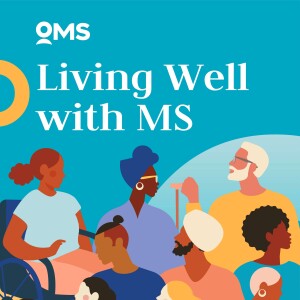
Wednesday Jun 26, 2024
Wednesday Jun 26, 2024
Welcome to Living Well with MS, where we are pleased to welcome Rachel Burn as our guest! Rachel is a Psychotherapeutic Counsellor and follows the Overcoming MS Program. In this episode, Rachel talks to Geoff about who should work with a therapist, how to choose a therapist, how to unpack our emotions and how to know if you’re a highly sensitive person. Watch this episode on YouTube here. Keep reading for the key episode takeaways. Topics and Timestamps: 01:46 Rachel’s background and her MS and Overcoming MS journey. 08:14 Who should work with a therapist? 09:49 How you should choose a therapist and style of therapy. 12:27 How to unpack your emotions scientifically as waves of chemicals. 16:06 Unhelpful tactics of clinging to emotions or suppressing them. 19:29 The connection with highly sensitive people (HSPs) and autoimmunity. 21:43 How to know if you’re highly sensitive. 26:05 The power of the Overcoming MS community for the newly diagnosed. Want to learn more about living a full and happy life with multiple sclerosis? Sign up to our newsletter to hear our latest tips. More info and links: Connect with Rachel on the Live Well Hub Follow Rachel on TikTok @born_a_bodymind Listen to Craig Hassed’s episode on meditation tips Find out more about the books that Rachel mentions: Gabor Mate’s book When the Body Says No Elaine Aron’s book The Highly Sensitive Person Bessel van Der Kolk’s book The Body Keeps The Score Susan Gehrig’s book Why Love Matters Lisa Feldman Barrett’s book: How Emotions Are Made 'Key to Successful Therapy' Read about the 90-second life of an emotion New to Overcoming MS? Visit our introductory page Connect with others following Overcoming MS on the Live Well Hub Visit the Overcoming MS website Follow us on social media: Facebook Instagram YouTube Pinterest Don’t miss out: Subscribe to this podcast and never miss an episode. Listen to our archive of Living Well with MS episodes here. If you like Living Well with MS, please leave a 5-star review. Feel free to share your comments and suggestions for future guests and episode topics by emailing podcast@overcomingms.org. Make sure you sign up to our newsletter to hear our latest tips and news about living a full and happy life with MS. Support us: If you enjoy this podcast and want to support the ongoing work of Overcoming MS, we would really appreciate it if you could leave a donation here. Every donation, however small, helps us to share the podcast with more people on how to live well with MS.
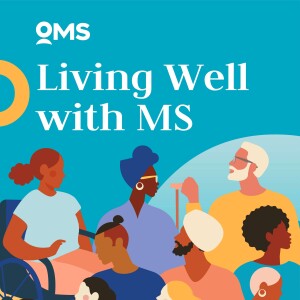
Wednesday Jun 19, 2024
Wednesday Jun 19, 2024
Welcome to Living Well with MS, where we are pleased to welcome Bee Grzegorzek (she/they) as our guest! Bee is the Inclusive Communities Manager for UK-based charity, Attitude is Everything, which connects disabled people with music and live event industries to improve access together. They talk to Geoff about making a festival safe and enjoyable, her top tips for finding accessible venues and red flags to look for in a venue’s accessibility. Watch this episode on YouTube here. Keep reading for the key episode takeaways. Topics and Timestamps: 00:56 Introduction: What is Attitude is Everything? 03:10 Environmental, organisational and attitudinal barriers to access. 05:34 Advances in accessibility in the last 20 years. 07:36 Whose responsibility is it to educate people about accessibility? 08:57 Bee’s top tips for finding accessible venues. 10:49 Red flags to look for when asking about a venue’s accessibility. 15:13 What to do if there’s an accessibility problem during an event. 17:52 Bee’s recommendations for making a festival as safe and fun as possible. 21:51 How to navigate food at venues with dietary requirements. 23:50 The benefits of accessibility scheme cards. 25:21 Personal assistant tickets. 26:38 Helping disabled artists get their access needs met. Want to learn more about living a full and happy life with multiple sclerosis? Sign up to our newsletter to hear our latest tips. More info and links: UK Access Card Hynt Scheme for Welsh access MS Society “I have MS” card for access needs Visit Attitude is Everything’s website Overcoming MS chef cards for dietary needs New to Overcoming MS? Visit our introductory page Connect with others following Overcoming MS on the Live Well Hub Visit the Overcoming MS website Follow us on social media: Facebook Instagram YouTube Pinterest Don’t miss out: Subscribe to this podcast and never miss an episode. Listen to our archive of Living Well with MS episodes here. If you like Living Well with MS, please leave a 5-star review. Feel free to share your comments and suggestions for future guests and episode topics by emailing podcast@overcomingms.org. Make sure you sign up to our newsletter to hear our latest tips and news about living a full and happy life with MS. Support us: If you enjoy this podcast and want to support the ongoing work of Overcoming MS, we would really appreciate it if you could leave a donation here. Every donation, however small, helps us to share the podcast with more people on how to live well with MS.
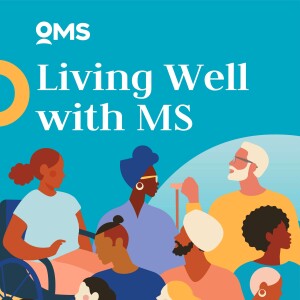
Wednesday May 29, 2024
Wednesday May 29, 2024
Welcome to Living Well with MS, where we explore topics relating to living a full and healthy life with multiple sclerosis. In this episode, we are pleased to welcome Dr Fraser Quin as our guest! Dr Quin is the Executive Director of the British Society of Lifestyle Medicine (BSLM), a charity that promotes the role of lifestyle medicine in improving people’s health and wellbeing. He speaks to Dr Jonathan White about the role of lifestyle medicine for people with MS, the importance of sleep and how healthcare professionals are training to support their patients with lifestyle medicine. Topics and Timestamps 00:00 Dr Quin’s background and role at the British Society of Lifestyle Medicine (BSLM). 04:02 What is lifestyle medicine? And what isn’t lifestyle medicine? 07:02 The role of the BSLM in the healthcare landscape. 10:28 The history and future of lifestyle medicine across the globe. 16:08 Why sleep is such an important pillar of lifestyle medicine. 20:28 How doctors are being trained in lifestyle medicine. 29:27 The #1Change Campaign: How making one small healthy change can change your life. Want to learn more about living a full and happy life with multiple sclerosis? Sign up to our newsletter to hear our latest tips. More info and links: Learn more about the British Society of Lifestyle Medicine Find out more about the Royal College of General Practitioners (RCGP) Find out more about the Royal College of Psychiatrists Watch back our livestream on talking to skeptics with Dr Jonathan White and Yasmin Neves Learn more about the #1Change campaign Learn about creating habits with Atomic Habit by James Clear Sign up to the 6 Months to Overcoming MS course New to Overcoming MS? Visit our introductory page Connect with others following Overcoming MS on the Live Well Hub Visit the Overcoming MS website Follow us on social media: Facebook Instagram YouTube Pinterest Dr Quin’s bio: Dr Quin’s career Dr Fraser Quin is the Executive Director of the British Society of Lifestyle Medicine, European Lifestyle Medicine Council and World Lifestyle Medicine Organisation. Fraser is currently a Non-Executive Director of Ark Housing Association and was previously Chair of Deaf Action, Scotland’s largest Deaf charity. His academic background Fraser also has a background in higher education and was formerly a Senior Lecturer in Environmental Economics, completing his PhD at Edinburgh University. His personal life Fraser is a strong advocate for Lifestyle Medicine and is in his own words “living the dream” as a keen cyclist, with his type 2 diabetes currently in remission. He is also an avid motorcyclist and regularly tours Europe and the UK on his Triumph. Don’t miss out: Subscribe to this podcast and never miss an episode. Listen to our archive of Living Well with MS episodes here. If you like Living Well with MS, please leave a 5-star review. Feel free to share your comments and suggestions for future guests and episode topics by emailing podcast@overcomingms.org. Make sure you sign up to our newsletter to hear our latest tips and news about living a full and happy life with MS. Support us: If you enjoy this podcast and want to support the ongoing work of Overcoming MS, we would really appreciate it if you could leave a donation here. Every donation, however small, helps us to share the podcast with more people on how to live well with MS.
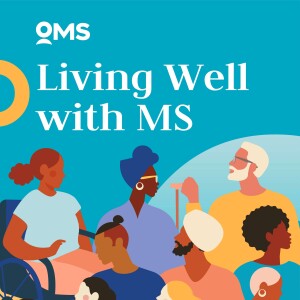
Wednesday May 15, 2024
Wednesday May 15, 2024
In this episode, we’re sharing highlights from our webinar ‘Accessible Movement for the Overcoming MS Community’ with Dr Véronique Gauthier-Simmons. Véronique is a qualified yoga therapist who follows the Overcoming MS Program and supports Overcoming MS as a facilitator. She discusses the benefits of exercise, how to make it more accessible and how to stay motivated. Watch this episode on YouTube here. Keep reading for the key episode takeaways. Topics and Timestamps: 01:01 The benefits of exercise. 07:09 How you can set SMART goals to stay motivated to exercise. 12:40 How you can modify physical activity for your ability and balance. 15:14 Breathing exercises to work your core muscles. 20:46 Examples of chair-based exercises for the arms, legs and spine. 29:15 Your intention can change how an exercise feels in your body. 34:20 Dopamine release doesn’t occur until six weeks into a new exercise routine, so don’t give up! Want to learn more about living a full and happy life with multiple sclerosis? Sign up to our newsletter to hear our latest tips. More info and links: Watch the original webinar Read: The Joy of Movement by Kelly McGonigal Find out more about Veronique’s movement classes Try an Overcoming MS exercise video Join Veronique's free live classes Learn more about Veronique New to Overcoming MS? Visit our introductory page Connect with others following Overcoming MS on the Live Well Hub Visit the Overcoming MS website Follow us on social media: Facebook Instagram YouTube Pinterest Don’t miss out: Subscribe to this podcast and never miss an episode. Listen to our archive of Living Well with MS episodes here. If you like Living Well with MS, please leave a 5-star review. Feel free to share your comments and suggestions for future guests and episode topics by emailing podcast@overcomingms.org. Make sure you sign up to our newsletter to hear our latest tips and news about living a full and happy life with MS. Support us: If you enjoy this podcast and want to support the ongoing work of Overcoming MS, we would really appreciate it if you could leave a donation here. Every donation, however small, helps us to share the podcast with more people on how to live well with MS.




